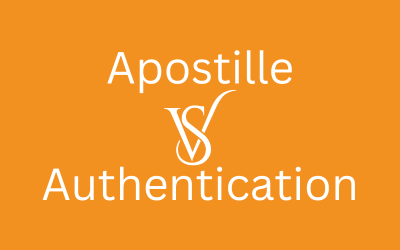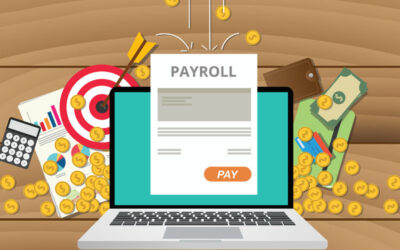While paying taxes is a certainty for small business owners, there are some options for how you might pay them. The simplest strategy for paying your small business taxes is to make sure money is available when your tax bill comes due. If that is not possible for some reason, you can register for an IRS payment plan that allows you to pay your balance over a specified amount of time, use a credit card to pay your bill, apply for a bank loan, or apply for a business line of credit. Let’s have a look at each of these options.
Option 1: Plan Ahead to Pay Your Taxes
The taxes you’ll pay are based on the net profit your business generates. If your business entity is a sole proprietorship, partnership, or S Corporation and you expect to owe more than $1,000 in taxes during a calendar year, you’ll probably have to make estimated quarterly tax payments. Those payments normally are made in April, June, September, and January, so it’s important to have money available at those times to pay your taxes.
If you’re a solopreneur or otherwise self-employed, you’ll need to pay self-employment tax in addition to income tax. The self-employment tax rate, which includes Social Security and Medicare taxes, is 15.3% for 2023 and 2024, but you can deduct 50% of the self-employment tax on your tax return.
To ensure you’ll be able to pay the quarterly estimated tax, it’s recommended that you put aside 25 to 30% of your net business income in a bank account that’s separate from the one you use for day-to-day business dealings. If your business generates $25,000 net profit per quarter, for instance, you’d want to save between $6,250 and $7,500 per quarter for taxes.
You can pay federal quarterly estimated taxes online or by mail. The IRS encourages taxpayers to use the Electronic Federal Tax Payment System (EFTPS) to pay all federal taxes electronically. You’ll need to enroll with the IRS to use the EFTPS, which is linked to your bank account. Some states – but not all – also enable electronic tax payments.
Option 2: Request a Payment Plan with the IRS
If you’re not able to pay the full amount of tax you owe by your required filing date, you should still be sure to file on time. Ignoring the problem won’t make it go away, and not filing can trigger the IRS’s “Failure to File” penalty, which is 5% of the unpaid taxes for each month the return is not filed.
If you can’t pay the full amount, the IRS can charge you interest on the balance, along with a monthly late payment penalty. You can, however, request a business payment plan, which enables you to pay the taxes over an extended period. Businesses that owe less than $25,000 in combined taxes, penalties, and interest may qualify to apply for a long-term payment plan. Sole proprietors and independent contractors would apply for a payment plan as individuals. You’ll have to pay a setup fee, which is much higher if you apply by phone, mail, or in person rather than online. Interest and penalty charges will still be added to your balance until it’s paid in full, but you’ll be on track by reducing the amount of what you owe each month.
Option 3: Pay Taxes with a Credit Card
You can use a credit card to pay your tax bill, but generally, it’s not a good idea. Average credit card interest was hovering around 23% at the end of 2023, according to the Federal Reserve, a rate that could quickly put your tax bill out of reach if you are unable to pay the balance in full when it comes due. Also, the IRS contracts with three independent payment processors for credit card transactions, and the fees they charge can be hefty. Even if your credit card offers money back on the transaction, it’s unlikely to be more than the fees you’ll have to pay the processor. In most cases, an IRS payment plan is a better option than using a credit card.
In certain circumstances, however, paying your taxes with a credit card can provide benefits, such as those described below:
- Many rewards credit cards offer welcome bonuses that give significant rewards for spending a certain amount within a short period of time after getting the card. If you can use one of these cards to pay your tax bill, reap the rewards, and pay it off when the bill is due, you could end up ahead of the game.
- Some cards offer rewards like expensive hotel rooms or airline elite status to customers who spend a lot on their cards within a calendar year. Again, if you can use the card to pay your taxes, get the reward, and pay the bill on time, you could benefit.
If you decide to use a credit card to pay your tax bill, be sure that the amount you owe doesn’t exceed your credit limit. Doing so can result in penalties and negatively affect your credit scores. If you need to use credit to pay your tax bill, consider splitting the cost over more than one card to avoid exceeding credit limits.
Option 4: Get a Loan or Business Line of Credit
If you’re unable to pay your tax bill in full, another option is to apply for a bank loan or a business line of credit. Interest rates on bank loans are often lower than other options, but a loan can be difficult to qualify for and may require significant time for processing. Plus, you’ll need to be able to repay the loan by a specified time.
A business line of credit provides access to a set amount of money. Like a credit card, you can use the money over and over, as long as you pay it down. You only pay interest on the money you use, which could make a line of credit a good option if you don’t need a lot of extra money to pay your tax bill. The interest rate on a line of credit can vary dramatically, however, and the application process may not be simple.
Using Deductions to Reduce Your Tax Bill
Regardless of how you pay your tax bill, it’s smart to reduce your tax burden as much as possible by deducting all the business expenses to which you’re entitled. A business expense, according to the IRS, is a cost necessary to run a business, and many of them can be deducted on your tax return. Consider the following deductions, which, according to SCORE, a nonprofit designed to assist small business owners, are frequently overlooked.
- Health Insurance – If you’re self-employed and paying for health insurance for you, or you and family members, you may be eligible for a deduction on your personal tax return. According to SCORE, health insurance is one of the most overlooked deductions.
- Startup Costs – Expenses incurred before the launch of your business may count as business deductions on your first year’s tax return. Most small businesses can deduct up to $5,000 in startup costs.
- Wages and Payroll Taxes – If you, as the owner of a business, pay yourself a wage or salary instead of taking a distribution or dividend, you can avoid having to pay the entire self-employment tax amount on your personal tax return, and you deduct the payroll taxes that have been taken out of your salary and paid to the government. If you have employees other than yourself, you should claim all their wages and payroll taxes as deductions, as well. Remember that if your business is planning on hiring employees, you’ll need to register for payroll taxes, which are taxes withheld from every employee’s salary and submitted to the federal government to fund Medicare and Social Security. All small businesses must track and report all payroll taxes to avoid government audits and fines.
- Taxes, Interest, Fees, and Charitable Contributions – You might be able to deduct as business expenses state and local taxes, interest and late fees on business credit cards, some fees on business banking accounts, and charitable contributions.
- Contributions to Retirement Plans – Contributing to a retirement plan can enable you to take tax deductions while assuring your future financial situation. What you can deduct varies according to the type of plan you have.
- Home Office Use – If there’s dedicated space in your house from which you conduct business, you can deduct expenses such as property taxes, homeowner’s insurance, utilities, home repairs, maintenance, and so forth. The IRS provides guidelines for these deductions, so make sure you do some research before assuming they apply.
- Bad Debt – You may be able to deduct bad debt, which is debt you take on when someone owes your business money and doesn’t pay, leaving you holding the bag. Again, you should consult IRS guidelines on bad debt to see if you qualify.
- Marketing Expenses – Expenses such as advertising, email marketing, website development, marketing consultants, and others are deductible on your tax return.
- Education and Training – The cost of employee education, including for solopreneurs, is fully deductible on your tax return.
- Travel and Entertainment – These deductions have been tightened in the past few years, but some business and entertaining expenses are still deductible. Be sure to check IRS regulations.
Why It’s Important
Figuring out how to pay your small business taxes and making sure you claim all the deductions you’re entitled to requires time and effort, but are important steps in assuring your business runs smoothly and you remain in compliance with IRS regulations. If you’re unsure about how you can pay your taxes or need help identifying the business expenses you’re able to deduct on your tax return, seek the advice of a reputable tax professional.





